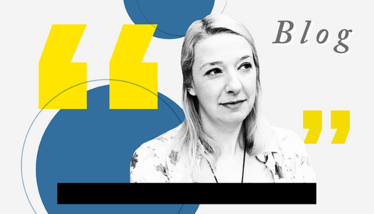Reactions to the UK’s Approval of a CRISPR Medicine
Scientists celebrate a new era of genetic medicine but what do we do about the costs?
Stephanie Vine | | 3 min read | News

Last week, the UK’s MHRA conditionally approved the world’s first CRISPR-Cas9 therapy: Casgevy for sickle cell disease and transfusion dependent beta thalassemia. The therapy has been developed by Vertex and CRISPR Therapeutics. A decision in the US is not expected until December 8.
It’s a remarkable moment for the CRISPR field – and for patients. “Sickle cell disorder is a very complex life-limiting and life-threatening disorder with very limited treatment options. Whilst curative treatments may not be suitable for all, gene therapy offers a real chance of cure for those who are not eligible for bone marrow transplants and so we are delighted that it has been approved by MHRA,” explained Sara Trompeter, a consultant haematologist University College Hospitals London and NHS Blood and Transplant, in a statement.
The announcement has also been welcomed by Jennifer Doudna’s lab. Alongside Emmanuelle Charpentier, Doudna was the recipient of the 2020 Nobel Prize in Chemistry for the discovery of using CRISPR Cas9 for gene editing. On the social media platform X, Doudna wrote,” I am excited and a bit overwhelmed with emotion at the news of the approval of CASGEVY in the UK. Going from the lab to an approved #CRISPR therapy in just 11 years is a truly remarkable achievement. I am especially pleased that the first #CRISPR therapy helps patients with sickle cell disease, a disease that has long been neglected by the medical establishment. This is a win for medicine and for health equity. Today is an extraordinary moment for the field, for patients in need, and for the future.”
It’s fantastic to see so many people celebrating the achievement, but there is an elephant in the room. The cost. The UK approval does not mean that UK patients will have access to the therapy. Before it can be accepted for use on the country’s national health system, it needs to pass a rigorous evaluation from the drug cost watchdog, NICE. No price has been revealed yet for Casgevy – but many media sources expect it to be over $1 million. Earlier in 2023, Reuters reported that the therapy would be considered cost effective if priced at up to $1.9 million, based on information from drug pricing groups.
Simon Waddington, Professor of Gene Therapy at University College London, praised the approval as a “tremendous advance in the treatment of beta thalassemia” but also raised concerns about the accessibility of the therapeutic to other countries. He said, “This treatment may not easily scale up to be able to provide treatments in low and middle income countries, since it requires the technology to obtain a patient’s blood stem cells, deliver the genetic editor to these stem cells, and then reinjection of these cells. Therefore, it is not an ‘off the shelf’ medicine that can be readily injected or taken in pill form.”
Last year, I attended a conference on advanced medicines and I distinctly remember a panel of experts – which included a patient’s father – being asked about the high costs of groundbreaking new therapies. The patient’s father replied, “They’re worth it.”
There is no doubt that these therapies are worth it to the patients and their families. I just hope that healthcare systems and insurers can find a way to make it work financially.

Making great scientific magazines isn’t just about delivering knowledge and high quality content; it’s also about packaging these in the right words to ensure that someone is truly inspired by a topic. My passion is ensuring that our authors’ expertise is presented as a seamless and enjoyable reading experience, whether in print, in digital or on social media. I’ve spent fourteen years writing and editing features for scientific and manufacturing publications, and in making this content engaging and accessible without sacrificing its scientific integrity. There is nothing better than a magazine with great content that feels great to read.



















